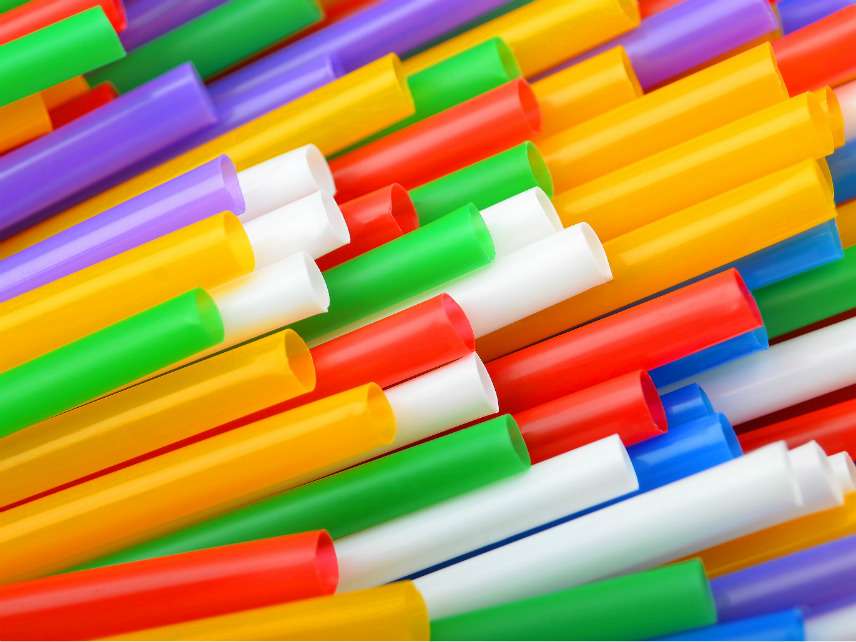Media, Legislators, Activists Stick By Straw Stats Produced By 9-Year-Old
An elementary school student said Americans use 500 million straws a day. Adults studying the issue put the figure far lower.

Dubious statistics can keep thriving in our policy debates long after they've been debunked. Take the oft-cited fact that Americans use 500 million straws a day.
The source for this number is an unconfirmed 2011 phone survey of three straw manufacturers conducted by 9-year-old Milo Cress. That's a pretty shaky foundation for an argument, but that hasn't stopped media outlets, activist organizations, and government officials from using the figure to justify restrictions on the use of plastic straws.
Many outlets were either oblivious to the figure's origins or mistakenly attributed it to the National Park Service. Learning its true source did spark some self-reflection from the Washington Post, which had cited the 500 million number in some of its reporting, and which ran a story that was somewhat skeptical of Cress's findings.
Sadly, that introspection was short-lived. This past Friday, the Post was back to uncritically citing Cress's research, saying in a story that "by some estimates, Americans throw away 500 million plastic straws a day."
Others are sticking by the figure too. When the Post ran its skeptical story, a spokesperson for California Assemblyman Ian Calderon (D–Los Angeles), who had sponsored a bill criminalizing the offer of unsolicited straws, told the paper "we have no reason to believe it's not accurate." Calderon's office could cite no other national statistic about straw use in the United States, but because no one had definitively debunked Cress's number, they were going to stick with it.
A similar line of reasoning has been advanced by the fact-checking website Snopes, which says: "No one has proven that [500 million straws a day] figure wrong, mind you; it's just that Cress is its only source and no one has confirmed his research independently."
But more credible estimates of American straw usage do in fact exist.
The marketing analysis firm Technomics specializes in researching the food service industry. Every two years, it performs a study of disposable food service packaging; its most recent effort, from 2016, looked at over 30 different categories of packaging. Those numbers do not include straws purchased for home consumption, but David Henkes, a senior principal at the firm, says the study captures about 95 percent of the straw market.
Technomics found that Americans use 172 million straws each day. Given a growth rate of 2–3 percent per year in the straw market, Henkes estimates the figure today is somewhere around 175 million.
Cress reached his 500 million figure from calling three straw manufacturers, asking for their estimates of the straw market, and then averaging the answers he got. Given the fragmented nature of the food service business, Henkes says that approach is bound to give you a bad figure.
"You tend to get the bias of those three companies. Some of them may have big accounts like McDonald's or Starbucks or something," Henkes tells Reason. "What those miss is the parts of the business that aren't using as many straws. What you're essentially doing is extrapolating your small part of what you know about the business to the larger food service industry."
For this reason, Technomics adopts a "triangular" approach, surveying over 1,000 restaurant operators, looking at data from distributors such as Gordon Food Service and US Foods, and examining numbers from packaging companies (several of whom are Techonomics clients).
It seems fair to say that Technomics' survey is more rigorous than Cress's.
Getting this number right, is not a mere academic quibble. If we're going to consider legal sanctions for the use of a product, you need good data on how much the product is used.
"I think restaurants are an easy target to these bans and taxes and things like that," Henkes says. "I think it's important to have the right number out there for policy debates."
Rent Free is a weekly newsletter from Christian Britschgi on urbanism and the fight for less regulation, more housing, more property rights, and more freedom in America's cities.


Show Comments (70)